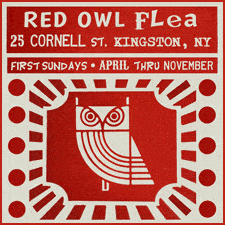Should you be afraid of the Cookie Monster? – Business of Doing Business – The Journal of Antiques and Collectibles – December 2002
By Ed Welch
Everyone has heard about computer cookies but few know what they are or how they work.
WHAT IS A COOKIE?…and WHO PUT THE COOKIES IN MY COMPUTER?
Theoretically, computer cookies are not bad things. They help computer users get things done quickly and efficiently. However, in the wrong hands cookies can cause annoyance, aggravation, and loss of personal privacy.
When your mother told to not to take candy from strangers, she did not say this to frighten you. There was a reason for her caution. In the Computer world adults are as vulnerable as children when it comes to taking candy (cookies) from strangers.
Cookies are small pieces of information stored in your computer that facilitate interactions between your computer and the computer on the website you are visiting.
Cookies are sent to your computer by many websites you visit, usually without your knowledge or consent.
WHAT ARE COOKIES USED FOR? ..and WHAT IS WRONG WITH COOKIES THAT HELP ME WORK?
Cookies store specific information about you and what you do when you visit a given website. If you sell at Internet auctions, cookies helped the auction company recognize you, what you sell, and how much you use their service. In addition, auction site cookies track what you search for on their pages and record keywords, categories, and the type of items you buy. They keep track of the time of day you are active and much, much more.
The simple answer to this question is nothing. Cookies exchanged between two parties who want to do business with one another are, in my opinion, a good thing. What I object to are cookies placed on my computer by paid third parties and cookies set by websites I visit without my permission.
WHAT ARE TWO PARTY COOKIES? …. WHAT ARE THIRD PARTY COOKIES?
When you (party No. 1) do business with an Internet company (party No. 2) certain information must be exchanged between both parties. Typically, this information includes name, address, phone number, credit card number and an agreement on the type of business transactions that will take place between both parties. Usually, the Internet business will place several cookies on your computer to help them recognize you and display on your screen the pages you will need to conduct your business.
If you were to take the time to read the “agreement” rather than simply clicking “I accept,” you would likely find a paragraph or two that explain what cookies the company will set and why they need them.
Third party cookies are placed on your computer by many of the websites you visit while simply browsing the Internet. In addition, third party cookies are placed on your computer by Internet Tracking Businesses that are paid a fee to collect and forward information about your online activities.
It has been my experience that teenagers collect the most cookies. Teenagers are more likely to click on banner ads and little buttons just to see where the click will take them. They may stay at a new site for only a few seconds but the damage is done in that third party cookies associated with this site have already been placed in your computer.
I have seen computers with more than 2000 cookies stored in the cookie folder; each one of these cookies is gathering information about you and your family. If you want to see how many cookies are in your computer, right click the “Start” button and left click the word “ explore.” Next, scroll down to the file folder named “cookies.” Double-click this folder and a list of cookies on your machine will appear.
While you are in the “explore” mode, scroll down to the folder marked “history.” This folder contains a record of every website that you and other family members have visited since you purchase your computer. Fathers and mothers can look in this folder to see which sites their children visit. Husbands can check on their wives, wives can check on their husbands. If you find this thought uncomfortable, how do feel about the fact that strangers may have already viewed and analyzed the information in this folder?
Finally, click the folder “Temporary Internet Files.” Browsers keep a record of sites viewed. This helps the browser reload recently viewed pages quicker. This record is a page-by-page viewing history. If you want to know where your computer has been lately and what it has seen, this is the place to look. Would you mind if I looked at these files? How about your boss, next-door neighbor, or your Uncle Sam?
Third party cookies are placed on your computer by mass marketing companies and target marketing companies. Some companies use the information gathered about you to create a type of profile on your browsing habits. They sell this information to mass marketing companies. This is the reason you receive so many junk e-mails and why banner ads and pop-ups fill your browser.
Recently I purchased airline tickets to Europe. Within days my junk e-mail and the banner ads that pop up on my screen began to offer information on European hotels, rental cars, travel insurance, and offers to buy luggage. Cookies are not supposed to be used to track individuals or to establish a profile on a computer user.
The problem of invasive cookies is easy to solve. First, third party cookies must be outlawed. It is no one’s business that I am taking a trip to Europe except the airline that sold the thicket, the credit card company I used to pay for the ticket, and myself. Setting third party cookies without the owner’s knowledge or consent is, in my opinion, an invasion of privacy and should not be allowed to continue.
Secondly, two party cookies must be regulated and set only with the consent of both parties. If I choose to sell at an Internet auction site, that site must tell me how many cookies it wants to set and allow me to choose and declined any cookies not necessary for the transaction of your business. Moreover, all two party cookies should have an expiration date.An expiration date of one year would be reasonable for ongoing business relationships such as doing business with an online auction company, buying and selling stocks, and online banking. Cookies set by online stores and catalogs should expire 30 days after the close of the transaction. Cookies that never expire (which may be needed for certain business to business transactions) should be allowed only with a written contract agreed upon by both parties.
SHOULD YOU BE AFRAID OF THE COOKIE MONSTER?
I believe that the answer to this question is, you should be careful. Unregulated cookies are an invasion of privacy. Unregulated cookies are similar to having several people with binoculars constantly looking through the windows of your home to see what they can see.
It is against the law to peer through the windows of your home. It is against the law to listen to or record your phone conversations. It should be against the law to track your Internet activities.
Mass marketers claim that tracking Internet activities is somehow different from looking through your windows or taping your phone. Advocates of Internet activity tracking make the argument that tracking browsing habits has always been allowed and therefore should not be restricted.
I disagree with this premise. The Internet as we know it today is just ten years old. Invasive cookies are only five years old. Many of the businesses that want to track what you do online are just three years old. Not enough time has passed to set historical precedence.
I believe that in the future the setting of third party cookies will be banned or severely limited. This will happen when things get personal. When your insurance company drops coverage because you visit sites related to a major illness. When a co-worker makes a rude remark about the Internet sites you visit. When your boss calls you into the office because you have been looking at employment sites. All of these things can and will happen.
In the meantime, take upon yourself the responsibility of deleting your Temporary Internet files, History files, and Cookie files once a day. You can buy inexpensive programs that will do this work automatically once each day.
Learn more about this subject at: http://www.cookiecentral.com
Learn more about programs that will keep your computer free from cookies at: http://www.webroot.com
Learn how to set up your own Firewall and filter you incoming mail for viruses at: http://www.norton.com





Related posts: